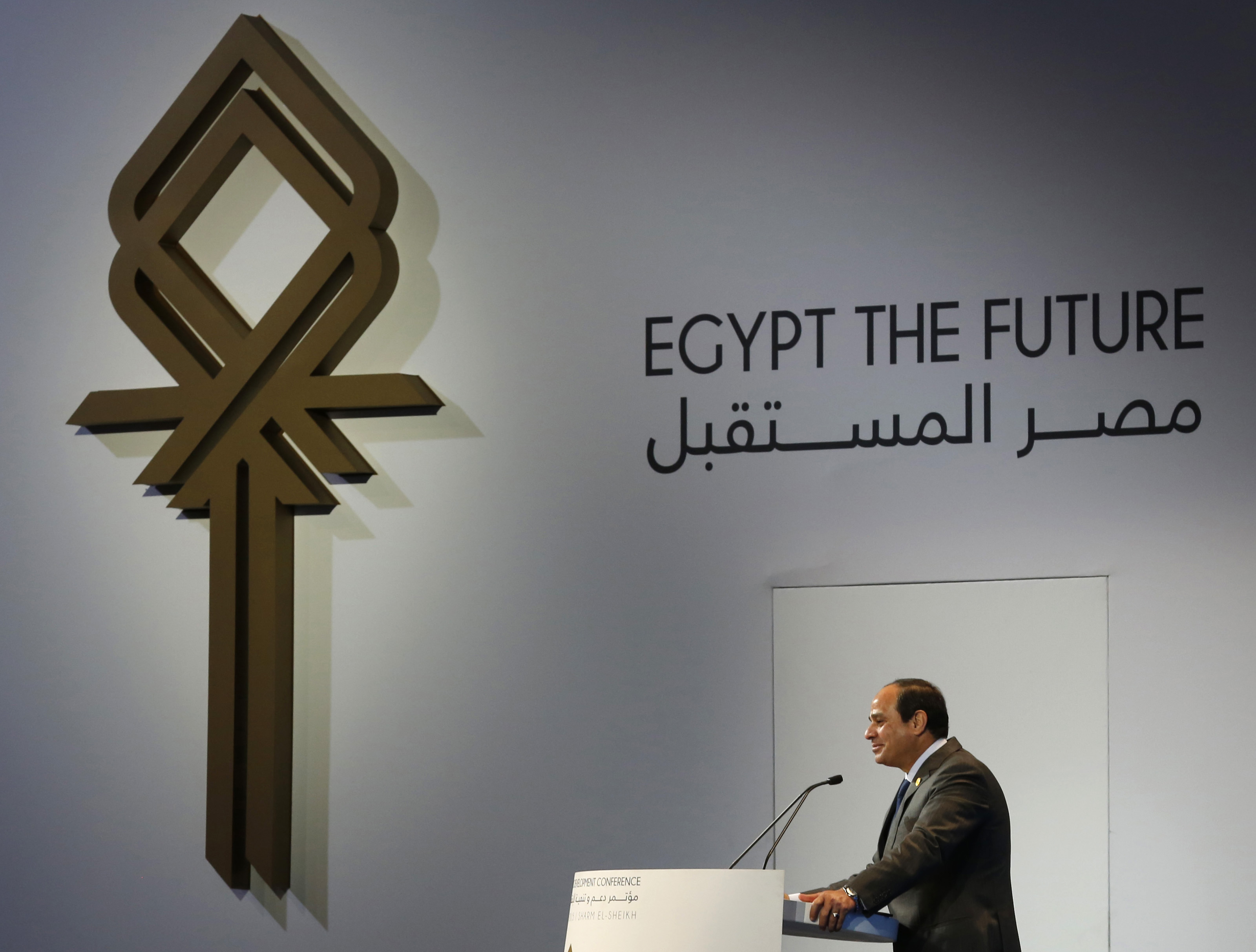Latest NEWS
- Aswat Masriya, the last word
- Roundup of Egypt's press headlines on March 15, 2017
- Roundup of Egypt's press headlines on March 14, 2017
- Former Egyptian President Hosni Mubarak to be released: lawyer
- Roundup of Egypt's press headlines on March 13, 2017
- Egypt's capital set to grow by half a million in 2017
- Egypt's wheat reserves to double with start of harvest -supply min
- Roundup of Egypt's press headlines on March 12, 2017
Egyptian economy's growth rate expected to decline in 2016 – World Bank

President Abdel Fattah Al-Sisi gives speech on first day of economic summit
By Mohamed Gad
CAIRO, Jan 7 (Aswat Masriya) - The World Bank lowered its expectation for the economic growth rate in Egypt for the fiscal year 2015/2016 by 0.7 per cent compared to its forecast last June, warning of the implications of the Russian jetliner's crash for the tourism industry and foreign currency shortage.
"The contraction in foreign currency inflows that would accompany a shrinking tourism industry would not only negatively impact growth, but would exacerbate the existing foreign currency shortage," the report stated.
Tourism revenues had relatively improved, as having increased by 27 per cent in 2014 compared to the previous year, according to the Egyptian Tourism Minister. The figure was expected to rise in 2015, but the Russian jetliner's crash over the Sinai in October led to a shift in the minister's expectation, with an expected 10 per cent reduction in revenues.
In its latest report "Global Economic Prospects: Spillovers amid Weak Growth", the World Bank forecasted a decrease in Egypt's GDP to become 3.8 per cent compared to 4.2 per cent in the previous fiscal year.
Egypt's Minister of Planning Ashraf al-Arabi previously stated that the Egyptian government is targeting a growth rate of 5 per cent to 5.5 per cent in the current fiscal year.
According to the World Bank, the pickup in Foreign Direct Investment (FDI) to Egypt has not been as strong as expected given pledges at the Egypt Economic Development Conference in March 2015.
Egypt organised a large-scale Economic conference in Sharm al-Sheikh aimed at attracting foreign investments. The multinational banking and financial services corporation, Bank of America, estimated the value of investment agreements signed at the conference to be around $10 billion.
According to the Central Bank of Egypt (CBE), net FDI to Egypt increased to approximately $ 6.3 billion dollars in 2014 compared to $4.1 billion the year before.
The World Bank saw there is a need for the CBE Governor to oversee a boosting of the critically low levels of foreign reserves, which would likely entail "rounds of currency devaluation". In the meantime, monetary policy should also resist pressure on an inflation rate that is already high.
The rise in domestic consumption was considered a means of support to the economy, however the World Bank noted that Egypt did not benefit from the global decline in commodity prices given the rise of the dollar value against the Egyptian pound.
Egypt witnessed a rise in local commodity prices as the Central Agency for Public Mobilisation and Statistics (CAPMAS) announced in December that the annual inflation in domestic price indices in urban areas rose to 11.1 per cent in November compared to 9.7 per cent in October.
The CBE devalued the Egyptian pound against the dollar three times in 2015 reducing it by 80 piasters in the official market, before revaluating the pound and raising it by 20 piasters in November. The pound is currently stablised at 7.83 per dollar.
In the third quarter of 2015, the unemployment level reached 12.8% of the labor force, which is higher than the figure of 2011, according to the report.
The report predicted that growth in FY2016/2017 should rise to 4.4 per cent, driven by a rise in investment.
(This article was translated into English by Nourhan Fahmy.)










